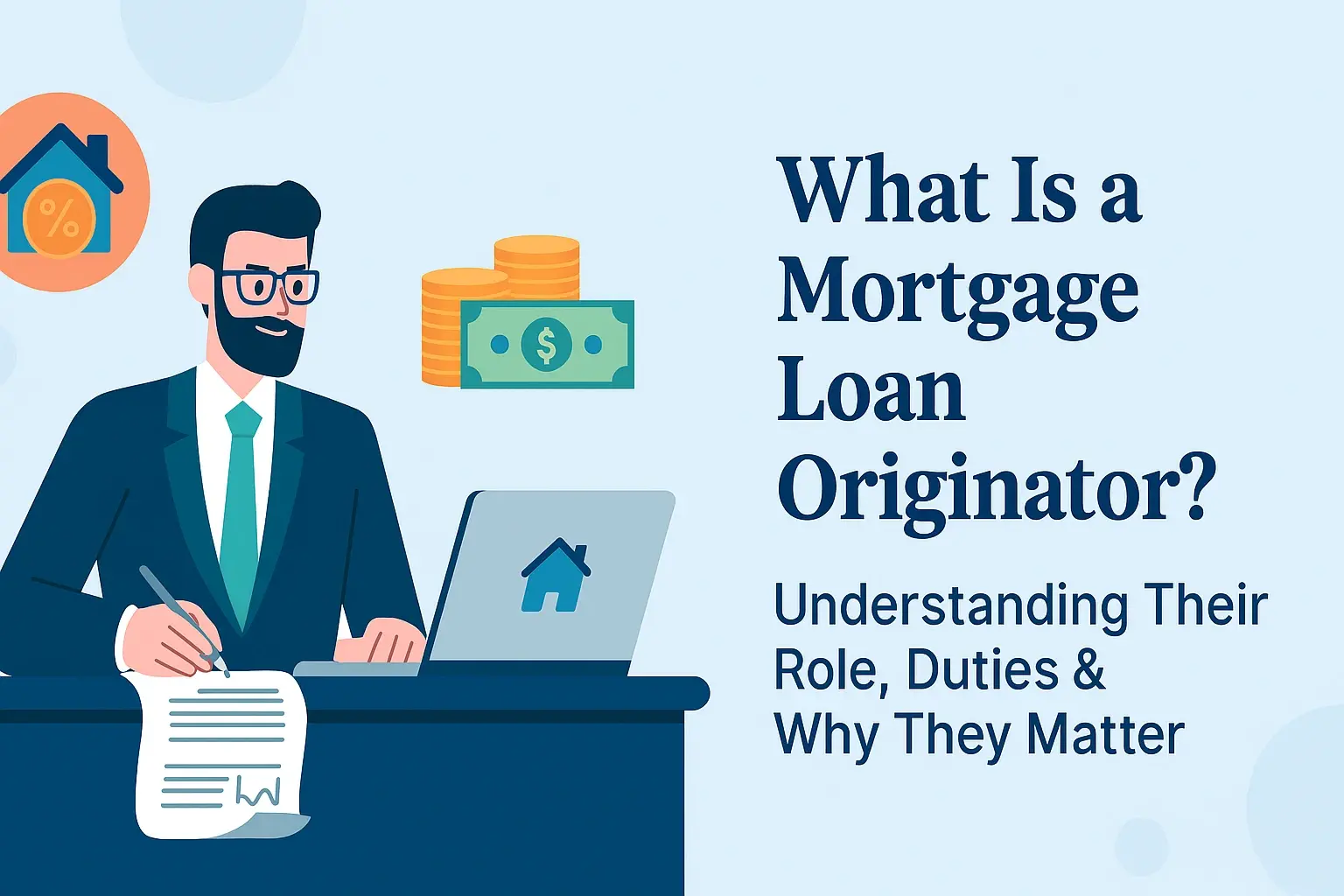-
Posted on: 23 Aug 2024

-
A home equity loan is a powerful financial tool that allows homeowners to borrow money against the equity they've built in their homes. This can be a valuable resource for funding major expenses, such as home improvements, debt consolidation, or large purchases. However, it's crucial to understand the process, requirements, and potential risks involved before applying. This guide will walk you through everything you need to know to successfully get a home equity loan.
What is a Home Equity Loan?
A home equity loan, also known as a second mortgage, allows you to borrow a lump sum of money using your home as collateral. The loan amount is determined by the difference between your home's current market value and the outstanding balance on your primary mortgage. Lenders typically allow you to borrow up to 80-85% of your home's equity, although this can vary depending on your creditworthiness and other factors.
Home Equity Loan vs. HELOC: Understanding the Difference
It's important to distinguish between a home equity loan and a Home Equity Line of Credit (HELOC). While both leverage your home's equity, they function differently:
- Home Equity Loan: You receive a lump sum upfront and repay it over a fixed term with fixed interest rates. Think of it as a traditional installment loan secured by your home.
- HELOC: Acts like a credit card secured by your home. You have a credit limit you can draw from during a "draw period" (typically 5-10 years). During this period, you typically only pay interest on the amount you've borrowed. After the draw period, you enter a repayment period where you repay the principal and interest. HELOCs often have variable interest rates.
For this guide, we'll focus specifically on the process of obtaining a *home equity loan*.
Is a Home Equity Loan Right for You?
Before diving into the application process, consider whether a home equity loan aligns with your financial goals and risk tolerance. It's crucial to weigh the benefits against the potential drawbacks.
Benefits of a Home Equity Loan
- Lower Interest Rates: Compared to other forms of debt, like credit cards or personal loans, home equity loans often have lower interest rates because they are secured by your home.
- Fixed Interest Rates and Payments: The predictability of fixed interest rates and payments makes budgeting easier.
- Potential Tax Deductibility: In some cases, the interest paid on a home equity loan may be tax-deductible (consult with a tax professional to confirm your eligibility).
- Large Loan Amounts: You can typically borrow a significant amount of money, making it suitable for major expenses.
Risks of a Home Equity Loan
- Risk of Foreclosure: Because your home secures the loan, you risk foreclosure if you fail to make payments.
- Fees and Closing Costs: Home equity loans often involve various fees, such as appraisal fees, origination fees, and closing costs.
- Debt Burden: Taking on additional debt can strain your finances, especially if you're already struggling with other obligations.
- Impact on Future Borrowing: A home equity loan can affect your debt-to-income ratio, potentially impacting your ability to qualify for future loans.
Carefully consider these factors before proceeding. If you are uncertain, seeking advice from a financial advisor is recommended.
Eligibility Requirements for a Home Equity Loan
Lenders typically evaluate several factors when assessing your eligibility for a home equity loan. Understanding these requirements will help you determine your chances of approval.
1. Home Equity
The most crucial factor is the amount of equity you have in your home. As mentioned earlier, lenders typically allow you to borrow up to 80-85% of your home's equity. To calculate your equity, subtract the outstanding balance on your mortgage from your home's current market value.
Example:
- Home's Market Value: $400,000
- Outstanding Mortgage Balance: $200,000
- Equity: $400,000 - $200,000 = $200,000
In this example, if a lender allows borrowing up to 80% of your home's value, the maximum loan amount you could potentially qualify for is: (80% of $400,000) - $200,000 = $120,000.
2. Credit Score
A good credit score is essential for securing a home equity loan with favorable terms. Lenders view your credit score as an indicator of your ability to repay debt responsibly. A higher credit score typically translates to lower interest rates and better loan terms.
Generally, you'll need a credit score of at least 620 to qualify for a home equity loan, although some lenders may require a higher score. A score in the 700s or higher will significantly improve your chances of approval and secure better rates.
3. Debt-to-Income Ratio (DTI)
Your debt-to-income ratio (DTI) is the percentage of your gross monthly income that goes towards paying off debt. Lenders use DTI to assess your ability to manage additional debt payments.
To calculate your DTI, divide your total monthly debt payments (including your mortgage, credit card payments, student loans, and other debts) by your gross monthly income (before taxes). Lenders generally prefer a DTI of 43% or less.
Example:
- Total Monthly Debt Payments: $2,000
- Gross Monthly Income: $5,000
- DTI: $2,000 / $5,000 = 0.40 or 40%
4. Income and Employment History
Lenders need to be confident that you have a stable and reliable source of income to repay the loan. They will typically require documentation to verify your income, such as pay stubs, W-2 forms, and tax returns. A consistent employment history is also a positive factor.
5. Home Appraisal
Lenders will order an appraisal of your home to determine its current market value. The appraisal ensures that the lender is lending against a property with sufficient value to cover the loan amount. The appraisal must support the value you stated on your application; if it comes in lower than expected, it can impact your ability to borrow the desired amount.
Steps to Getting a Home Equity Loan
Now that you understand the eligibility requirements, let's outline the steps involved in obtaining a home equity loan.
1. Check Your Credit Score and Credit Report
Before applying, review your credit score and credit report. You can obtain a free copy of your credit report from each of the three major credit bureaus (Equifax, Experian, and TransUnion) at AnnualCreditReport.com. Check for any errors or inaccuracies and dispute them promptly. Improving your credit score can significantly improve your loan terms.
2. Calculate Your Home Equity
Determine the amount of equity you have in your home. Get an estimate of your home's current market value by researching comparable sales in your area or consulting with a real estate agent. Subtract your outstanding mortgage balance from this estimate to calculate your equity.
3. Shop Around for Lenders
Don't settle for the first offer you receive. Compare interest rates, fees, and loan terms from multiple lenders, including banks, credit unions, and online lenders. Request loan estimates from several lenders to compare the total cost of the loan.
4. Gather Required Documentation
Prepare the necessary documentation to support your loan application. This typically includes:
- Proof of Identity (Driver's License, Passport)
- Proof of Income (Pay Stubs, W-2 Forms, Tax Returns)
- Proof of Homeownership (Deed, Mortgage Statement)
- Bank Statements
- Other Debt Statements (Credit Card Statements, Loan Statements)
5. Complete the Loan Application
Fill out the loan application accurately and completely. Provide all the requested information and submit the required documentation. Be prepared to answer questions about your finances and your plans for using the loan proceeds.
6. Undergo the Appraisal Process
The lender will order an appraisal of your home. You may be required to pay the appraisal fee upfront. The appraiser will assess your home's value based on its condition, location, and comparable sales in the area.
7. Loan Approval and Closing
If your application is approved, the lender will provide you with a loan agreement outlining the terms of the loan, including the interest rate, repayment schedule, and any applicable fees. Review the loan agreement carefully before signing. Once you're satisfied, you'll attend a closing meeting where you'll sign the final documents and receive the loan proceeds.
Tips for Getting Approved for a Home Equity Loan
Here are some additional tips to increase your chances of getting approved for a home equity loan:
- Improve Your Credit Score: Pay bills on time, reduce your credit card balances, and dispute any errors on your credit report.
- Lower Your Debt-to-Income Ratio: Pay down existing debt to reduce your monthly debt payments.
- Increase Your Income: Consider taking on a side hustle or working overtime to increase your income.
- Save for a Larger Down Payment: While a home equity loan technically doesn't require a down payment in the traditional sense, having a larger equity cushion can make you a more attractive borrower. Focus on paying down your primary mortgage as much as possible.
- Be Prepared to Explain Any Financial Issues: If you have a history of financial problems, such as late payments or bankruptcies, be prepared to explain the circumstances to the lender. Demonstrate that you've taken steps to improve your financial situation.
Using Your Home Equity Loan Wisely
Once you've obtained a home equity loan, it's crucial to use the funds wisely. Avoid using the loan for frivolous expenses or unnecessary purchases. Here are some responsible uses for a home equity loan:
- Home Improvements: Use the funds to make upgrades or repairs that increase your home's value and improve your quality of life.
- Debt Consolidation: Consolidate high-interest debt, such as credit card debt, into a home equity loan with a lower interest rate.
- Education Expenses: Fund college tuition or other educational expenses.
- Major Medical Expenses: Cover significant medical bills or healthcare costs.
Remember that a home equity loan is a significant financial commitment. Carefully consider your ability to repay the loan before borrowing. Develop a budget and stick to it to ensure that you can comfortably manage your monthly payments.









